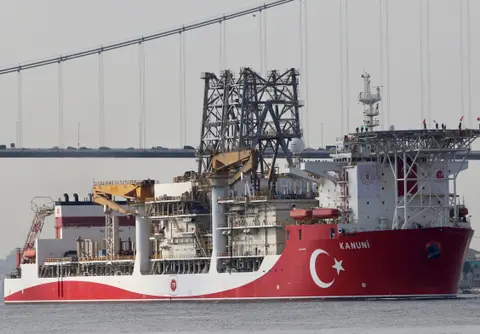
Beginning in 2025, Turkey will drill oil off the coast of Somalia
Ottoman oil drilling will start off the vast coastline of Somalia in 2019, the country’s director general of petroleum and mineral resources, Mohamed Hashi Abdi ‘Arabey’, has stated.
Abdi confirmed a recent claim made by a Turkish official regarding a plan to begin deep-sea oil drilling operations in early 2025 in an interview with the BBC Somali Service.
It is accurate and a component of the deal we made (with Turkey). According to information issued last week by Turkey’s Minister of Energy and Natural Resources Alparslan Bayraktar, “They will start seismic works and drilling at the coasts facing Barawe and Hobbio districts,” stated Abdi.
Hobbio is almost 500 miles northeast of Mogadishu, while Barawe is about 200 km south.
“There is a place on the Somali seaside we consider may have oil reserves,” said Bayraktar on Friday.
“We intend to begin deep sea drilling in 2025 and will begin seismic work,” he stated in an interview with the private Turkish television NTV.
Early in March, Somalia and Turkey inked a new gas and oil agreement that, according to officials, will facilitate collaboration in the hydrocarbons’ exploration and utilization.
Turkish Energy Minister Alparslan Bayraktar and Abdirisaaq Omar Mohamed, the minister of petroleum and mineral resources for Somalia, signed the agreement in Istanbul.
The oil deal is thought to have been made possible by Somalia and Turkey establishing a maritime and defense cooperation agreement.
A few lawmakers, among them the former presidential candidate Abdirahman Abdishakur, who requested additional details regarding the defense and marine cooperation pact, mentioned that oil was a part of the accord. During parliamentary debates, they insisted on receiving additional explanations.
Commentators and other doubters have blamed Somalia for the deal’s impending disadvantage.
The fact that Somali Minister Omar Mohamed signed the agreement to cooperate in exploration and exploitation further demonstrated that a mutual understanding outlining a comprehensive framework for cooperation had been reached.
The deal focuses on undeveloped land exploration and hydrocarbon reserves located in Somalia’s exclusive economic zone, according to an official dispatch from Somalia. However, the Minister refrained from revealing the distribution of the investment’s proceeds.
The minister went on to say that when the parties get to the point of signing a Production Share Agreement (PSA), income sharing will become apparent.
According to Turkey’s Bayraktar, the agreement will benefit the Somali government and people even more.
The Turkish minister said, “With this agreement, we will carry out joint activities to bring the resources of Somalia to the Somali people.”
He went on to say that Turkey wanted to fortify its position in the Horn of Africa by forming fresh energy-related partnerships.
Minister Bayraktar allegedly said, “We will maybe send our seismic (exploration) vessel there in the first phase,” and “Oil and natural gas exploration offshore from Somalia will start in areas we indicated,” in an attempt to fully clarify the energy arrangement, particularly its viability.
The Somali Petroleum Law was signed into law by Somali President Mohamed Abdullahi Farmaajo in 2020. The act created “a robust framework for governance while ensuring that Somalia’s petroleum resources are maximized for the benefit of the Somali people.”
Documents indicate that foreign oil corporations, such as Chevron, Eni, ExxonMobil, and Shell, initiated exploration efforts in Somalia around the 1950s. However, their efforts were halted upon the country’s descent into civil conflict in early 1991.
The federal government of Somalia is said to have sold seven offshore blocks to USA-based Coastline Exploration, located in Houston, in 2022, sparking a renewed interest in the region.
Hassan Sheikh Mohamud, the president of Somalia, reportedly proclaimed his country open for business with foreign businesses in October 2022 and endorsed Coastline’s production-sharing agreements with the federal government.
Mohamud dismissed doubters and emphasized that Somalia will gain from its resources, such as gas and oil, since it is in the best interests of the country.
All Categories
Recent Posts
Tags
+13162993331
zoneyetu@yahoo.com



